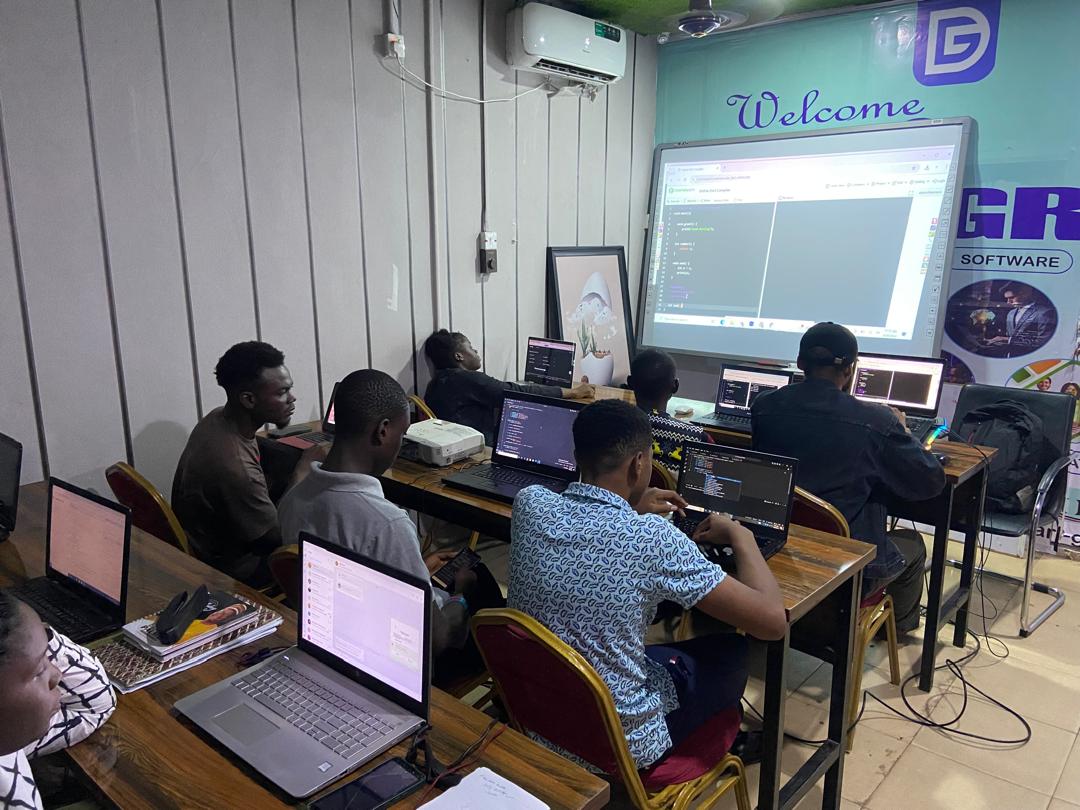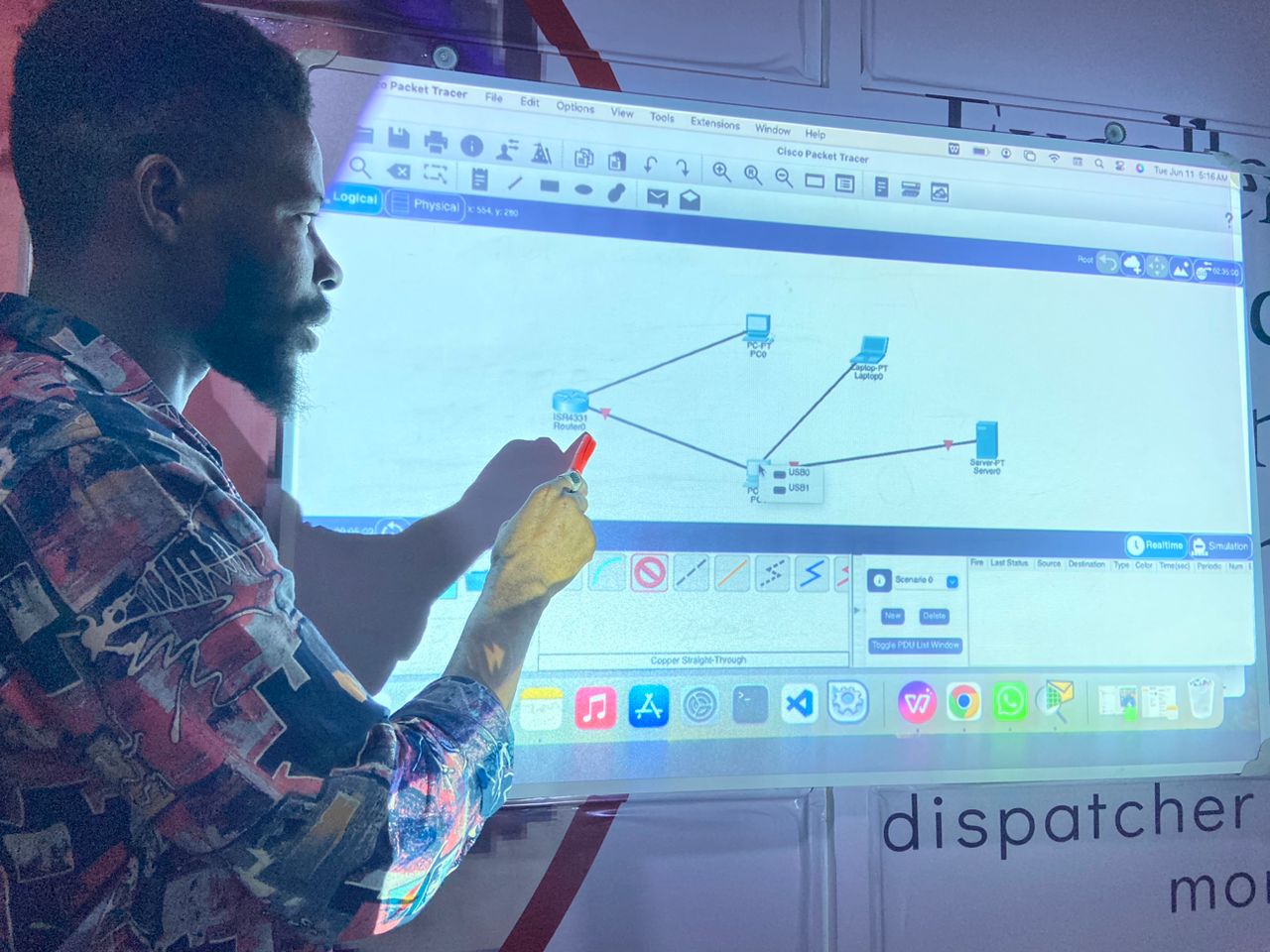Cybersecurity Training in Karu Abuja
The digital age has ushered in a transformative era, revolutionizing how we connect, communicate, and conduct business. However, this interconnectedness has also opened doors for malicious actors, making cybersecurity training in Karu Abuja an essential concern in today's world.
Effective cyber security training empowers individuals to become guardians of our digital landscape.
Understanding the Landscape: What is Cybersecurity and Why Does it Matter?
Cybersecurity refers to the practice of protecting computer systems, networks, and data from unauthorized access, use, disclosure, disruption, modification, or destruction. As our lives become increasingly digital, from online banking to social media interactions, safeguarding sensitive information becomes paramount.
Cyber threats are constantly evolving, ranging from phishing scams targeting individuals to large-scale attacks aimed at disrupting critical infrastructure. The consequences of a cyberattack can be devastating, leading to financial losses, reputational damage, and even physical harm.
The Global Need for Cybersecurity Professionals: A Call to Action
The global cybersecurity landscape faces a significant skills gap. According to a report by Cybersecurity Ventures, there will be a staggering 3.5 million unfilled cybersecurity jobs globally by 2025. This shortage is particularly pronounced in developing countries like Nigeria.
Nigeria, with its burgeoning digital economy and increasing internet penetration, is a prime target for cybercriminals. Data breaches at Nigerian banks and government institutions serve as a stark reminder. This highlights the urgent need for Cybersecurity Training in Karu Abuja and a skilled workforce capable of defending against these threats.
A career in cybersecurity offers a unique opportunity to be at the forefront of this critical battle. Cybersecurity professionals play a vital role in protecting individuals, businesses, and national security from cyberattacks.
Equipping Yourself for Success: Diverse Paths into Cybersecurity
There are several paths to embark on a rewarding cybersecurity career. Formal education can provide a strong foundation, with universities offering bachelor's and master's degrees in cybersecurity.
Cybersecurity certifications demonstrate your knowledge and expertise to potential employers. Popular certifications include CompTIA Security+, Certified Ethical Hacker (CEH), and Certified Information Systems Security Professional (CISSP).
DCH Academy stands out with its:
- Up-to-date curriculum: The curriculum is constantly updated to reflect the latest cyber threats and industry best practices.
- Experienced instructors: The instructors are seasoned professionals with real-world experience in the cybersecurity field.
- Industry recognition: DCH Academy's programs are recognized and respected by leading cybersecurity organizations.
Essential Skills for Cyber Warriors
Cybersecurity professionals require a diverse skillset to effectively secure computer systems and networks. Here's a breakdown of the key areas:
Technical Skills:
- Network Security: Understanding network protocols, firewalls, and intrusion detection systems.
- Operating Systems: Familiarity with Windows, Linux, and macOS for security configuration and incident response.
- Programming Languages: Knowledge of languages like Python and scripting languages for automation and analysis.
- Security Tools: Proficiency in security software for vulnerability scanning, intrusion detection, and security information and event management (SIEM).
Soft Skills:
- Communication: Clearly and concisely conveying technical information to both technical and non-technical audiences.
- Problem-Solving: Effectively identifying, analyzing, and resolving complex cybersecurity challenges.
- Critical Thinking: The ability to assess risks, prioritize tasks, and make sound decisions under pressure.
- Adaptability: Keeping up with the ever-evolving cybersecurity landscape and learning new technologies and strategies.
A Rewarding Path: Job Outlook and Salary Expectations
The job outlook for cybersecurity professionals is exceptionally promising. The U.S. Bureau of Labor Statistics projects a 33% growth in cybersecurity jobs from 2022 to 2032, much faster than the average for all occupations. This growth is mirrored in Nigeria and across the globe.
Salaries for cybersecurity professionals are quite competitive, reflecting the high demand and critical nature of the role, according to Indeed, the average base salary for a cybersecurity analyst in Nigeria is ₦6,254,509 per year, with salaries increasing based on experience and specialization.
Specializations in Cybersecurity
The vast and ever-growing field of cybersecurity offers a variety of specializations, allowing you to tailor your career path to your interests and skills. Here's a glimpse into some popular specializations:
- Network Security: Network security specialists are the frontline defenders, securing network infrastructure and data by implementing firewalls, intrusion detection systems (IDS), and other security measures. They monitor network traffic for suspicious activity, analyze security logs, and implement network segmentation to minimize the impact of breaches.
- Ethical Hackers: Also known as penetration testers, act as the good guys in the fight against cybercrime. Ethical hackers play a crucial role in proactive defense strategies, helping organizations patch vulnerabilities and strengthen security posture.
- Incident Response: Incident responders are the emergency response team of the cybersecurity world. They handle the aftermath of a cyberattack, containing the damage, eradicating the threat, and restoring affected systems.
- Cloud Security: Cloud computing has revolutionized the way we store and access data. Cloud security specialists ensure the security of data and applications hosted in cloud environments. They are well-versed in cloud security best practices, compliance regulations, and security tools specific to cloud platforms like AWS, Azure, and Google Cloud Platform (GCP).
- Security Analyst: Security analysts are the information detectives of cybersecurity. They analyze security data from various sources, including firewalls, intrusion detection systems, and endpoint security solutions.
- Digital Forensics: Digital forensics specialists specialize in the recovery, preservation, and analysis of digital evidence. They play a critical role in cybercrime investigations and legal proceedings.
- Social Engineering: Social engineering specialists understand the psychological tactics employed by attackers to manipulate people into revealing sensitive information or clicking on malicious links.
- Security Architect: They possess a deep understanding of security best practices, emerging threats, and risk management principles. They work closely with various stakeholders to design secure IT infrastructure, define security policies, and implement security controls to mitigate risks.
- Security Automation: Security automation specialists leverage automation tools and scripting to streamline repetitive security tasks.
- Mobile Security: With the proliferation of mobile devices, mobile security has become a critical concern. Mobile security specialists focus on securing mobile. A career in cybersecurity offers a unique opportunity to be at the forefront of this critical battle. Cybersecurity professionals play a vital role in protecting individuals, businesses, and national security from cyberattacks.
















